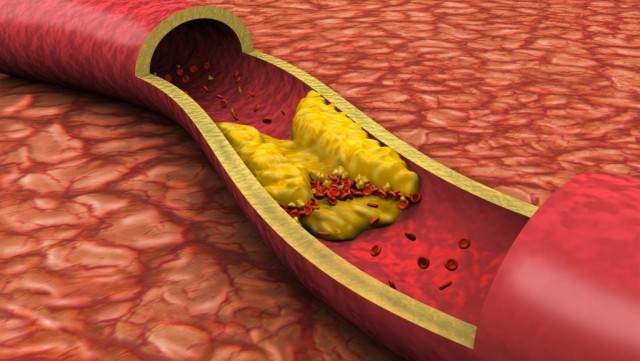November 2003 - A few safe and simple tests could identify and possibly prevent coronary heart disease in middle-aged women, according to findings reported by a University of Pittsburgh researcher at the American Heart Association's Scientific Sessions held Nov. 9-12 in Orlando, Fla.
"Most women gain one to two pounds per year as they approach and go through menopause, and a percentage of them will go on to develop heart disease as a result," said Lewis H. Kuller, M.D., professor of epidemiology at the University of Pittsburgh Graduate School of Public Health. "Keeping one's waist circumference from expanding is a good way to avoid a negative outcome, but more targeted monitoring of other predictors, such as insulin, adiponectin and coronary calcium, can give a more accurate indication of when a woman is entering the danger zone."
Unlike the fat that accumulates at other points on the body, waistline fat surrounds the abdominal organs, setting off physiological changes that can lead to a variety of diseases and disabilities.
A percentage of women who gain waistline fat at middle age develop high levels of insulin, or insulin resistance, throwing off their bodies' delicate glucose metabolism and triggering in some the development of smaller and numerous low-density lipoprotein (LDL) particles, which can lead to the development of coronary calcium deposits. These deposits indicate risk of heart attack.
Dr. Kuller and his colleagues have found that monitoring a woman's condition through a few simple tests can signal when action should be taken to stop the cascade of events that could otherwise lead to heart attack. Insulin resistance can be measured by testing blood levels of insulin, glucose and adiponectin � a type of fat-storing cell. Lipoprotein particles can be measured from a blood sample as well, and coronary calcium deposits can be discovered via electron beam tomography (EBT), a quick and non-invasive scan. If tests show any red flags, therapeutic interventions can be initiated immediately.
Continue Reading Below ↓↓↓
"There are very effective therapies, both pharmacological and nonpharmacological, to prevent the progression of insulin resistance, the development of small and numerous LDL particles and, potentially, the progression of atherosclerosis," said Dr. Kuller. These interventions are now being tested in Pittsburgh as part of the Woman On the Move through Activity and Nutrition (WOMAN) study, which Dr. Kuller is leading.
Source: University of Pittsburgh










